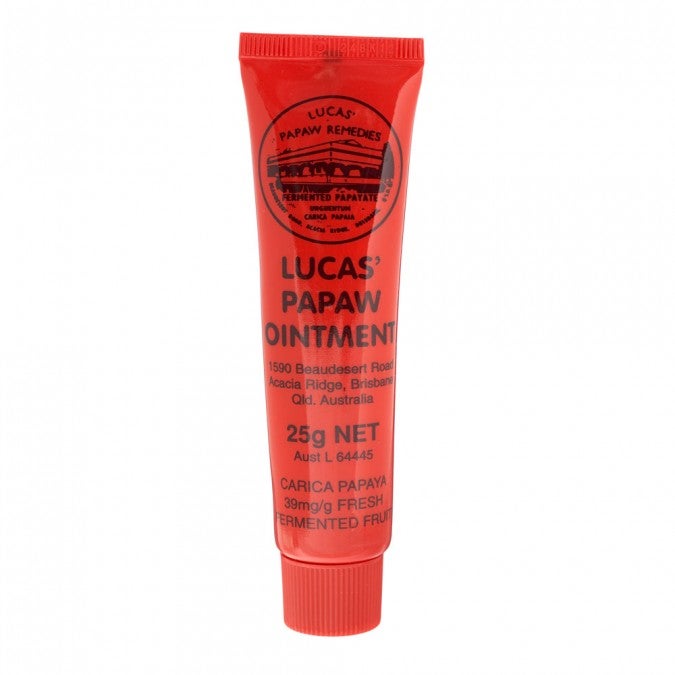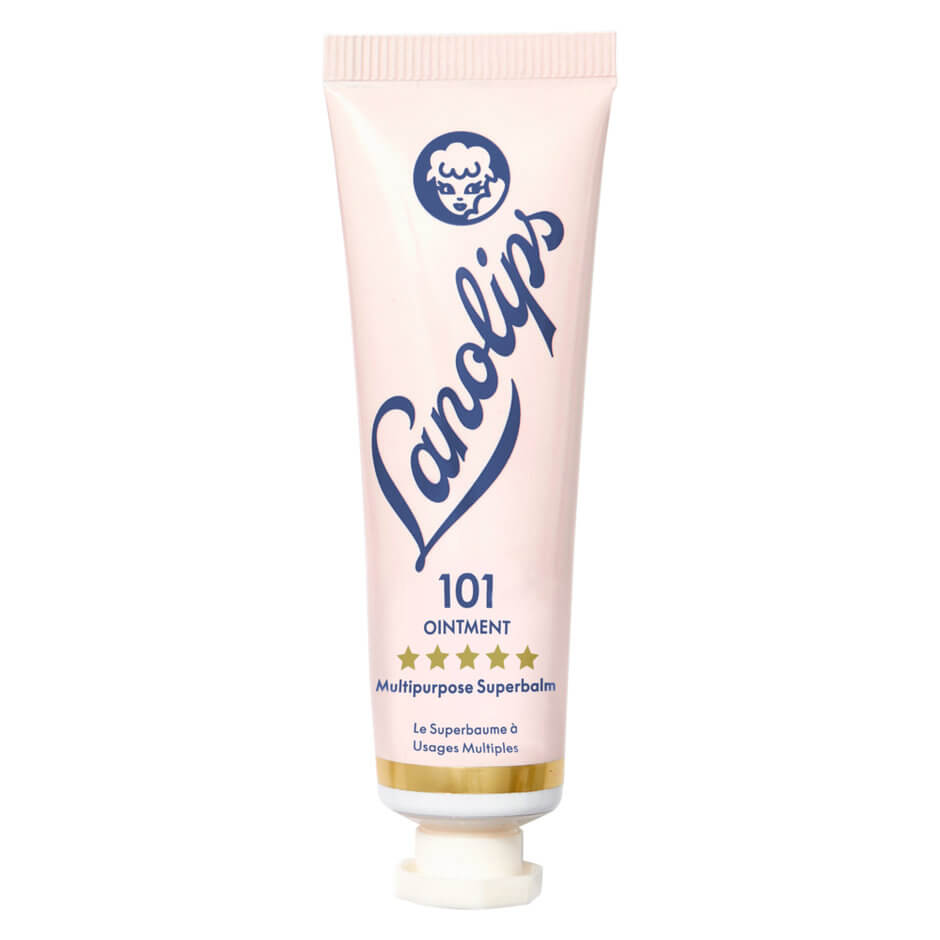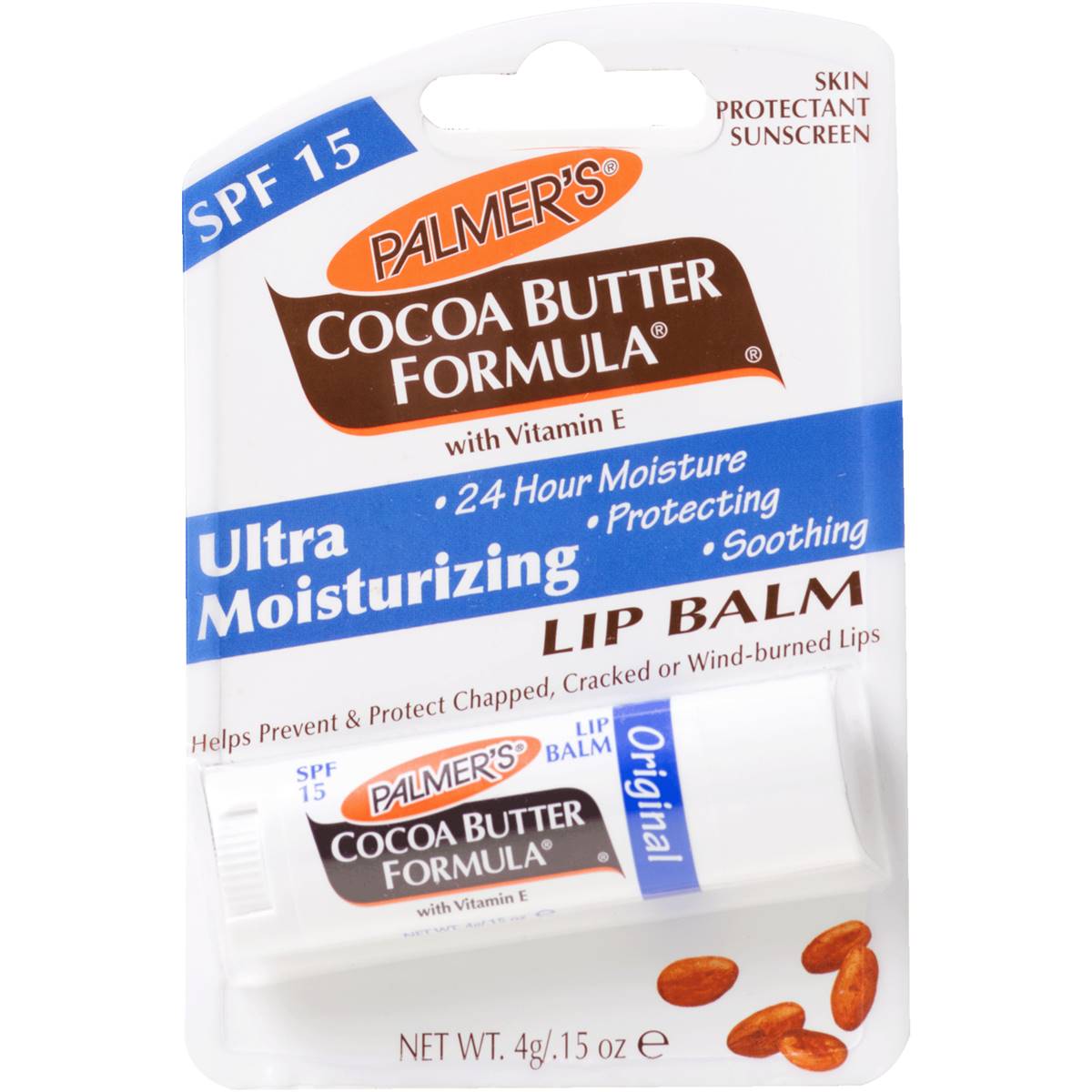At Refinery29 Australia, we’re here to help you navigate this overwhelming world of stuff. All of our picks are independently selected and curated by the editorial team, but we may earn commission or other compensation from the links on this page.
If your lips are constantly dry, you might be quick to blame it on the weather. With inevitably sore hands and a flaky forehead always comes a chapped mouth, particularly when the temperature is fluctuating, like it is at the moment.
Whether you're a Chapstick person or loyal to Paw Paw, you're probably always picking up yet another lip balm (one for every handbag, of course). But if you apply and reapply diligently, yet find that your lips are still as dry as the Sahara, you might want to look closely at the product you're using.
AdvertisementADVERTISEMENT
@denverskindoc As a derm I recommend avoiding menthol, camphor, benzocaine or beeswax containing lip balms. Just use plain Vaseline! Patients often develop an allergy to these ingredients which makes their lips stay chapped. #lipcare #chappedlips #lipbalm #dermhacks #imtheproblem #midnights ♬ Anti-Hero - Taylor Swift
Is lip balm making your dry, chapped lips worse?
Dermatologist Dr Scott Walter recently went TikTok-viral when he posted a video captioned: "Why your lips always stay chapped". In the clip, Dr Walter dropped the bombshell that his patients often develop an allergy to certain ingredients featured in popular lip products, which makes their lips stay chapped. Common culprits are menthol (a substance found in mint plants), camphor (a waxy substance from the camphor tree), benzocaine (commonly used as a pain reliever and often found in cough medicine) and beeswax.
It wasn't long before Dr Walter's followers took to the comments section in disbelief. Surely a product formulated to soothe sore, dry lips wouldn't make them worse? Unfortunately for some, though, that is the case.
Which ingredients should you avoid in lip balms?
"Yes, the ingredients in your lip balm may be the problem and making your lips worse," Dr Walter told Refinery29 UK. "If you become allergic to any ingredient in your lip balm, your lips react the same way: chapped, dry and irritated." More often than not, said Dr Walter, it could be an allergy or irritation from the lip balm ingredients.
Dr Derrick Phillips, consultant dermatologist and British Skin Foundation spokesperson, explains that allergies develop because repeated use of lip balm allows ingredients to penetrate the skin and provoke the immune system. "This causes a localised eczema with dryness, scaling and irritation — similar to the symptoms that led you to use the lip balm in the first place."
AdvertisementADVERTISEMENT
It pays to be savvy and check the ingredients list, especially if your lips are prone to chapping and becoming sore. "I recommend avoiding essential oils, fragrances, lidocaine [an ingredient that works like an anaesthetic] and beeswax (otherwise known as propolis)," said Dr Walter. "These have the potential to cause irritation and can lead to developing a contact allergy, even if you've tolerated them well in the past."
Menthol in particular feels nice and cooling on lips, initially soothing any irritation, explained Dr Walter, but it evaporates quickly and can lead to increased dryness. Dr Walter added that some ingredients like alcohol can also increase transepidermal water loss (where you lose moisture from the skin) and dry out your lips even further.
@denverskindoc Replying to @helhathfury besides Vaseline and aquaphor, these are others I like! Bringing this back given its already #chappedlips season! #lipbalm #lipcare #vaseline #drdans #papaw @denverskindoc ♬ original sound - Dr. Scott Walter - skin doctor
Which ingredients should you look out for in a good lip balm?
If you find yourself applying lip balm on the hour, every hour, it might be time to switch things up.
Dr Walter said that the ideal lip balm should feature two types of ingredients: humectants (such as hyaluronic acid and glycerin, which draw moisture into the skin) and emollients (like petrolatum, squalane, shea butter and coconut oil, which keep moisture under lock and key in the skin).
Here's the thing, though. Without subjecting you to a chemistry lesson, humectant ingredients must be teamed with emollient ingredients to make an effective lip balm. You can have one without the other but it's unlikely you'll get the results you want: plump, smooth, well-moisturised lips.
In Dr Phillips' opinion, nothing beats petroleum jelly. "This is the key ingredient in Vaseline and it acts as an occlusive, locking in moisture and preventing chapped, dry lips." Dr Phillips said that shea butter and cocoa butter are also great ingredients to look out for in lip care. "They contain fatty acids and vitamins which provide moisture and an anti-inflammatory action."
AdvertisementADVERTISEMENT
Dr Adil Sheraz, consultant dermatologist and British Skin Foundation spokesperson, says glycerin is an effective ingredient and also pinpoints paraffin, a very commonly used moisturising ingredient in lip care. The key, though? Making sure your lip balm is fragrance-free, as perfume can be notoriously irritating and drying.
Dermatologists often recommend Eucerin Dry Skin Intensive Lip Balm as it's fragrance-free and includes star ingredients glycerin (a humectant) and parkii butter (an emollient). In Australia, try R29 favourite Palmer's Cocoa Butter Formula Cocoa Butter Lip Balm, $4, which combines cocoa butter with paraffin and a handful of smoothing, plumping oils. You might also like Lanolips 101 Ointment, $14.95, and Lucas' Papaw Ointment, $7.29, with pharmaceutical-grade petroleum jelly.
How often should you apply lip balm?
Dr Walter said that applying lip balm two to three times a day should be enough for most people if the lip balm you're using is actually effective.
You might be tempted to lick dry lips but this is a no-go. "Try to avoid constantly licking your lips," said Dr Walter. "Saliva evaporates quickly and then dries out your lips even further." Dr Phillips added that lip licking only encourages excessive use of lip balm so you could be going around in circles. "Secondly," said Dr Walter, "try doing a DIY lip mask before going to bed," otherwise known as lip slugging. "Apply your favourite hyaluronic acid serum [you might want to try this on damp lips] and then lock in the moisture with a thick layer of Vaseline before going to bed."
AdvertisementADVERTISEMENT
If you suffer with dry lips due to problems such as eczema, Dr Sheraz recommended applying lip balm at least twice a day.
What to do if your lips are still chronically dry
If you've done all of the above but your lips aren't getting any better and they're feeling uncomfortable or painful, now might be a good time to visit your GP or, if you have a beauty budget, a dermatologist. "They can provide advice on what's best to use on your lips and make sure something else isn't going on that is causing them to remain chronically dry," said Dr Walter.
"This will help to exclude any contact allergies from lip balm or other skincare ingredients, as well as any other medical causes for dry, inflamed lips," added Dr Phillips. Dermatologists can offer you a patch test to help whittle down the ingredients in your products that you might be allergic to, for example.
Lastly, both Dr Walter and Dr Sheraz explained that chronic sun damage to your lips can also lead to something called actinic cheilitis, which presents in the same way as constantly chapped lips. We all know about the detrimental effects of too much sun. Actinic cheilitis increases the risk of developing a more serious condition such as skin cancer so if you're experiencing odd changes to your lips or the skin around them, it pays to seek professional advice from a doctor.
Want more? Get Refinery29 Australia’s best stories delivered to your inbox each week. Sign up here!
AdvertisementADVERTISEMENT









